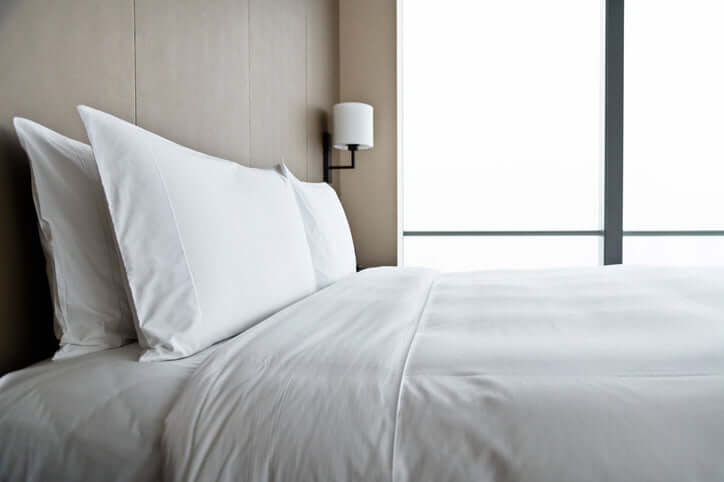If you’re in the market for new sheets, you’ve undoubtedly thought about the following: Which should I buy: Bamboo bedding or silk sheets? We’re here to help if you’re still undecided about which cloth to buy. What about the bamboo vs. silk debate? Which of the two most well-known fabrics for offering that desired smooth, silky, and luxury feel wins in the end?
Though we may be slightly biased, we strongly believe that bamboo bedding is significantly superior to silk sheets and would provide a better night’s sleep. Nevertheless, we’ll do our best to provide a true comparison of bamboo and silk so you can decide which fabric is ideal for your bedding.
Table of Contents
Which Is Better: Bamboo or Silk?
Both bamboo and silk are extremely nice and soft and feel wonderfully luxurious on our body. The parallels between bamboo and silk, unfortunately, end there. Bamboo and silk differ in the level of longevity and upkeep, breathability, hypoallergenic characteristics, sustainability, and cost-effectiveness. Here’s how it works:
The Key Differences Between Bamboo and Silk
- Longevity
Bamboo versus silk sheets has a significant difference in terms of care and durability. Silk is known to show signs of wear and tear considerably sooner than other bedding materials. Silk sheets are incredibly delicate, and while they would last a lot longer, a maintenance blunder will almost always necessitate their replacement.
When contrasted to silk, bamboo sheets are strong and durable. Bamboo sheets can be washed in the machine (on a cold, regular basis) and dried on the line. Bamboo sheets would also get softer overtime, which means you’ll have decades with your bamboo sheets without needing to replace them!
- Breathability
Do you have a habit of sweating when sleeping? If that’s the case, silk sheets aren’t the greatest choice for you when choosing between bamboo and silk sheets, unless you plan on sleeping with the air conditioning on all night. The filaments of silk do not let perspiration or heat pass freely, resulting in heating and moisture accumulation during the night. Bamboo sheets, on the other hand, feature small micro-gaps in the fibres that allow perspiration and heat to escape and cool your body. Bamboo sheets have all these tiny micro-gaps which give them a cooling, airy, and fresh sensation.
- Hypoallergenic
Bamboo fibres have antibacterial and hypoallergenic qualities by nature. Bamboo sheets normally wick moisture away, maintaining your sheets cleanliness and tidiness for longer. They’re ideal for those with skin issues or for those who don’t have allergies. While genuine silk does have certain hypoallergenic characteristics, these properties become less effective the more the sheets are used.
Are you looking for a solid answer to the question of bamboo vs. silk pillowcases? The hypoallergenic and breathability features of the two fabrics are what distinguishes them. If you’re researching bamboo pillowcases versus silk, it’s probably because you want to obtain a high quality pillowcase that will prevent friction on your hair while also being kind to your skin. As a result, bamboo must be your first option when you choose to lay your head down each night because of its hypoallergenic, antimicrobial, and breathability features.
Friendly to the Environment
Lastly, when weighing the pros and cons of bamboo vs silk, it’s crucial to examine how ecologically sound the production process is. If you value ecologically conscious purchase decisions, the difference between bamboo and silk sheets is significant.
Sadly, the manufacturing and production of silk bedding necessitate the employment of live silkworms, who are destroyed when the procedure is finished. While silk bedding can be considered (relatively) sustainable, the method of creating silk materials is not environmentally friendly, and silk bedding has indeed been declared non-vegan.
Bamboo bedding such as blanket sheets, pillow cases etc is a very environmentally friendly, sustainable, and long-lasting solution. When you buy bamboo sheets from a company that uses 100% organic bamboo and is Oeko-Tex certified, you’re getting high-quality sheets created from a regenerating plant with no hazardous production procedures. When comparing bamboo vs silk, the environmental protection of each fabric is a big factor in our opinion.

